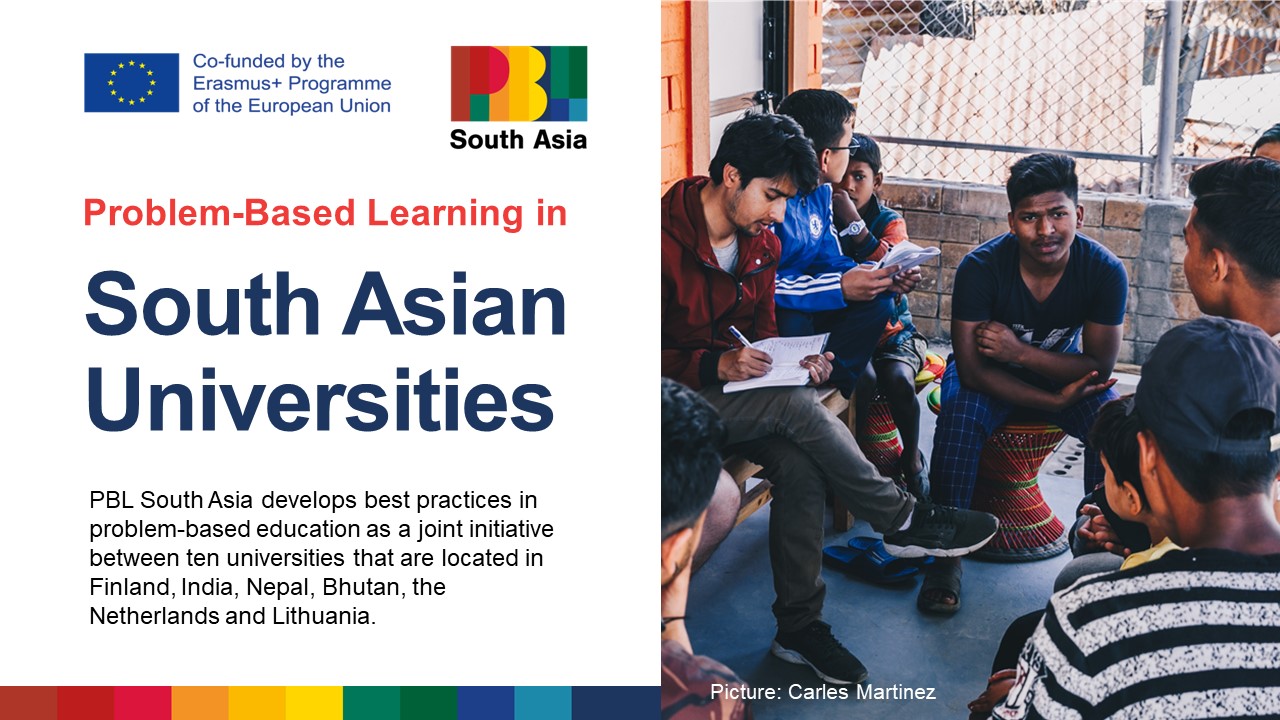
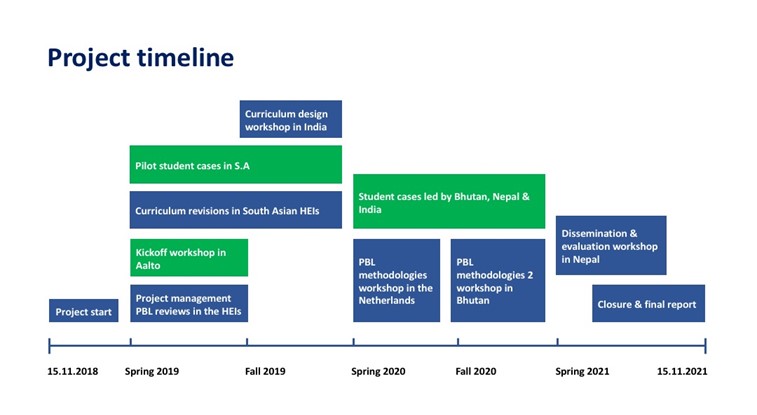
Project coordinator: Aalto University
Project partners:
Aalto University, Finland
Delft University of Technology, Netherlands
Kaunas University of Technology, Lithuania
Jigme Namgyel Engineering College, Royal University of Bhutan, Bhutan
Sagarmatha Engineering College, Nepal
Kathmandu University, Nepal
Asian Institute of Technology and Management, Nepal
Nepal Engineering College, Nepal
Indian Institute of Science, Bangalore, India
Indian Institute of Technology Bombay, Mumbai, India

India, Indian Institute of Technology Bombay, 17-26, 08 2019
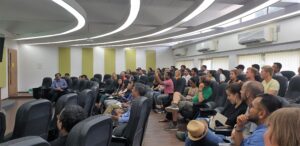
The Indian Institute of Technology Bombay hosted an intensive training programme to identify and deliberate on best practices in PBL education in the South Asian context. The training brought together academic staff and students from Indian, Nepalese, Bhutanese, Finnish, Dutch and Lithuanian universities, to jointly conduct case studies related to the built environment in the Mumbai area.
The mixed university teams included both faculty and advanced students, and engaged local industry and community representatives. The training provided unique insights into comparative analyses on the relevance and applicability of different educational methods applied by the European and South Asian universities to the study of sustainable development challenges.
Altogether 7 teacher-student teams worked for 6 different case beneficiaries representing industry, associations, and communities in the Mumbai area. The teams were facilitated by Aalto University, Delft University of Technology, Kaunas Technical University, Indian Institute of Technology Bombay, and Indian Institute of Science Bangalore.
The workshop provided extensive practical training and comparative analysis in the application of PBL methods for sustainable development in the South Asian context. It consisted of two weeks of intensive group work in self-organising teams focused on a real case setting with societal partners, as well as team mentoring practice, fieldwork activities, sustainability and impact analyses, design thinking methods, communication, and dissemination activities.
Affordable housing and slum rehabilitation I
Case owner: Larsen and Toubro Realty Limited
Problem: Rehabilitated slum residents have adaptation issues in the new vertical living environment.
Affordable housing and slum rehabilitation II
Case owner: Larsen and Toubro Realty Limited
Problem: Raani, 35, wants a clean and hygienic surrounding with more opportunities for social interaction and wishes to have affordable electricity.
Construction and demolition waste management
Case owner: Department of Civil Engineering, Indian Institute of Technology Bombay (IITB), Mumbai
Problem: In India, dumping of construction and demolition waste has been a huge problem for the government to manage and settle. There is only one recycling plant for construction and demolition waste, namely, “Godrej Construction”, in all over India which has been constructing compact bricks out of the concrete of construction and demolition waste.
Modular housing scheme for a public housing provider in a low-income locality, Maharashtra
Case owner: A public housing provider, Mumbai
Problem: How to provide affordable, safe, and spacious housing for low-income labour/workers through modular solutions?
Accessible Healthcare
Case owner: Medical Device Lab, Indian Institute of Science (IISc), Bangalore
Problem: Parents of hearing-impaired children need to consistently deliver goal-oriented speech therapy at home, otherwise the child’s progress in learning to understand language and speak will be hampered.
Redevelopment of Artist village Belapur
Case owner: Belapur Community, Mumbai
Problem: As Belapur densifies, how can we incorporate the lessons from Artist village to build a more inclusive wider community while ensuring income generation activities?
Liveability in slums
Case owner: Center for Urban Science and Engineering, IIT Bombay
Problem: Slums proliferate in Mumbai due to the lack of affordable housing in the formal market, as a result of faulty land development policies. Current procedures of demolishing slums and providing (either temporary or permanent) free housing to their dwellers, are resulting in high-rise rehabilitation buildings becoming “vertical slums”.
Participated: A.Jurelionis, L.Stasiulienė, L.Jankauskaitė-Jurevičienė, R.Apanavičienė, Stud.I.Vienažindis, Stud. E.Lekešiūtė, Stud. H.P Tuniki.
Nepal, 14-28 08 2022
The Nepal workshop is the collective two-week student case/workshop in collaboration between Kathmandu University (KU), Nepal Engineering College (NEC), Jigme Namgyel Engineering College (JNEC), Kaunas University of Technology (KTU) and Delft University of Technology (TU Delft). Its aim is to test PBL casework, engage in cases with external partners/stakeholders and move through a full PBL inquiry and design process in a simplified, condensed form.
PBL Case: Preserving adobe architecture
Traditional buildings in Bhaktapur and Panauti are examples of traditional architecture. The buildings are constructed in brick masonry with mud mortar, and timber elements. Traditional materials available in Bhaktapur are mud or clay, timber, brick, stone, wood and special types of metals such as roofing sheets and decorative elements. However, the structures of the traditional buildings are vulnerable and might be damaged during natural disasters such as earthquakes. Traditional heritage buildings deserve to be preserved as they have rich physical, social, religious and cultural value. Teams are expected to analyse the traditional building construction processes as well as materials properties and to find ways to control the transformation of traditional buildings in order to assure the existence of the actual urban fabric as much as possible while ensuring the requirements of modern life.
Keywords: changing construction methods, traditional building techniques, traditional architecture, adobe architecture, reconstruction, safety, construction processes, sustainable construction.
External stakeholders: Bhaktapur and Panauti Municipality
Field locations: Bhaktapur and Panauti
Workshop program:
Week 1 (14-19th August)
Day 0 – mentor ‘s meeting, preparations
Day 1 – 2 – Getting around host institution and town; cultural tips; Short intro to PBL South Asia project; Overview of the two weeks programme; Introductions on PBL, DT, forming the student’s teams, presenting the case/problem (local, linked to Sustainable development goals) – (parallel sessions during dissemination workshop?); practicalities – labs, etiquette etc.
Day 3 – Desk research for students, brainstorming sessions, planning, strategizing
Day 4 – 5 field visits, meeting the stakeholders; mentors reflections on the progress of the teams; initial ideas of the teams, reflections, what is missing etc. >> short presentations;
Week 2 (22-26th August)
Day 6 – 8 – developing the solution, additional field visit if needed;
Day 9 – preparation of the presentations and posters;
Day 10 –11 presenting the solutions to the faculty, mentors and stakeholders.
Final presentations :
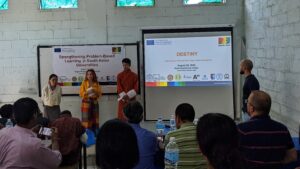
Participated: L.Jankauskaitė-Jurevičienė, R.Apanavičienė, Stud.D.Maniuk, Stud. V.Garliauskas, Stud. T.Seerungum, Stud.F.C.Manhanga, Stud.H.B.Tugtepe,
Kick-off meeting, Aalto University, Helsinki, Finland, 4-8 02 2019
The Kick-off meeting Meeting was organized by Aalto university for team building, project planning, project management, PBL methods/setting the scene, preparation of the first student case, Quality Plan inception, and PMT meeting. Participated A.Jurelionis, L.Stasiulienė, L.Jankauskaitė-Jurevičienė
Curricula Design Workshop, IISc, Bangalore, 14-18 10 2019
Centre for Product Design and Manufacturing (CPDM), Indian Institute of Science (IISc) hosted the PBL South Asia Curricula Design Workshop from 14th to 18th October, 2019. Representatives from the ten partner HEIs (higher education institutions) – Aalto University, Finland; TU Delft, Netherlands; KTU, Lithuania; IISc and IITB, India; JNEC, Bhutan and AITM, NEC, SEC and KU, Nepal – participated in the Erasmus+ funded project, Strengthening Problem-based Learning in South Asia (PBL-SA). The workshop was conceptualized under preparation, led by IISc and supported by IITB, for the implementation of PBL in curricula across South Asia. Its main objective was to apply ‘design thinking strategies to collaboratively design the curricula suitable for each of the beneficiary HEIs, across disciplines, in Nepal and Bhutan. The European and Indian institutions presented on their know-how in the area of PBL, and faculty and research associates mentored sessions to cocreate courses. The long-term aim is to build a strong network of PBL practitioners and collate best practices across partner institutions, to improve the implementation and dissemination of PBL in the South-Asian context. Participated A.Jurelionis, L.Stasiulienė.
Dissemination Seminar at Hotel Shanker, Nepal Engineering College, Kathmandu, 15 08 2022
The project dissemination seminar was held on August 15, 2022, at the hotel Shanker, Lazimpat in Kathmandu, Nepal. Assoc. Prof. Durgaprasad Bhandari of Nepal Engineering College (NEC), who is also a coordinator for this project in NEC, hosted the seminar. The seminar drew a total of 70 participants from various universities and colleges. Participated A.Jurelionis, L.Stasiulienė.
PBL MOOC and Entrepreneurship Workshop, TU Delft, Netherlands, 17-19 10 2022
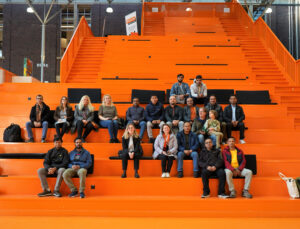
The main objective of the workshop was to share and consolidate the learnings and deliverables in the project on PBL methods for global sustainability and entrepreneurship and to record lectures for PBL MOOC.
Participated: A.Jurelionis, L.Stasiulienė, L.Jankauskaitė-Jurevičienė, R.Apanavičienė
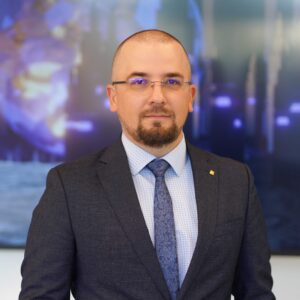
Project manager
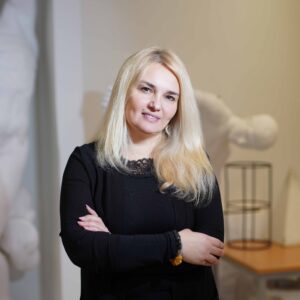
Project manager/mentor
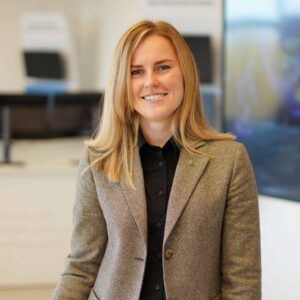
Project lecturer
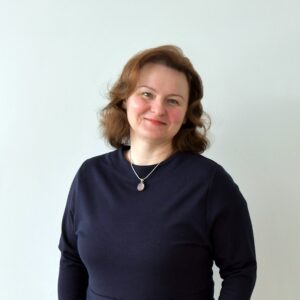
Project mentor
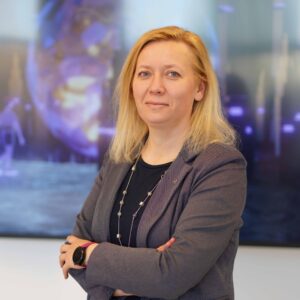
Project administrator
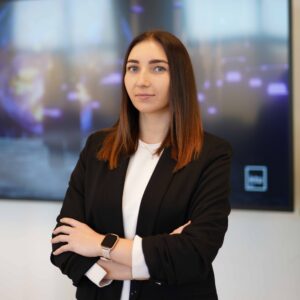
Project administrator
We invite CIVIL ENGINEERING AND ARCHITECTURE STUDENTS to join the project and go to Nepal this August!
WHY?
PBL is a learner-centered approach to tackling issues through research, practice, and supportive tutoring that guides the learning experience, which allows the students to develop their professional skills and abilities to facilitate such projects in the future.
WHO?
WHAT?
CASE in NEPAL: recovery after disastrous events
Preliminary dates for workshop and field visits: 15-28 August 2022. The whole trip can take up to 16 days depending on travel arrangements.
The costs of travel, accommodation and daily expenses will be covered for all participants in accordance with the requirements of the Erasmus + program. If selected, students are expected to cover extra costs for visas, insurance, etc.
The course will not provide ECTS credits, however, the certificate of participation will be provided.
WHEN?
Application till 18 th of May
Selection till 27 th of May
Preliminary trip dates 15-28 th of August
Write laura.jankauskaite-jureviciene@ktu.lt and you will get answers!
REGISTRATION IS OVER